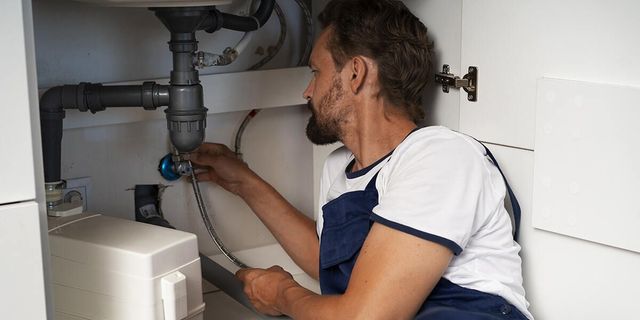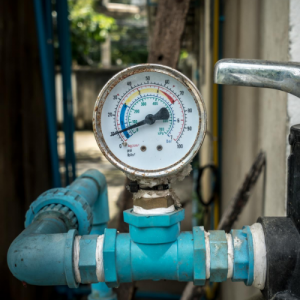Just how do you actually feel in regards to 4 Ways to Troubleshoot Low Water Pressure?

Low water stress in your house can be a discouraging issue, influencing whatever from showering to washing dishes. If you're experiencing weak water flow, there are a number of possible causes and remedies to explore. In this overview, we'll go over common reasons for low water pressure and functional steps to address the concern efficiently.
Introduction to Low Tide Stress
Low water stress occurs when the flow of water from your faucets, showers, and other components is weak than common. This can make daily jobs extra difficult and much less reliable. Recognizing the reasons for low water pressure is important to locating the right solution.
Typical Root Causes Of Low Water Pressure
Faulty Pressure Regulators
Pressure regulators are accountable for keeping consistent water stress in your house. If they malfunction, it can cause low water pressure or uneven flow throughout the house.
Community Supply Of Water Issues
Occasionally, the issue lies outside your home. Local water supply concerns, such as main line leakages or upkeep job, can temporarily minimize water stress in your area.
Pipe Obstructions
With time, pipelines can end up being clogged with natural resource, debris, or particles, limiting the flow of water. This is a common problem in older homes with galvanized steel pipelines.
Corrosion
Corrosion within pipelines can lead to leaks and decreased water stress. Rust buildup can constrict water circulation, especially in aging plumbing systems.
How to Detect Low Water Stress
Examining Pipelines
Inspect noticeable pipelines for signs of leakages, corrosion, or clogs. Focus on any unusual audios, such as banging or rattling pipes, which can indicate issues within the plumbing system.
Consulting with a Plumber
If you're not able to determine the root cause of low tide pressure, take into consideration working with an expert plumber to conduct an extensive examination. They can determine underlying problems and recommend ideal options.
Examining Taps and Fixtures
Start by testing the water stress at various faucets and fixtures throughout your home. If the issue is separated to details areas, it might show local problems.
Do It Yourself Solutions to Fix Low Water Pressure
Flushing Hot Water Heater
Sediment build-up in the hot water heater can limit flow and reduce efficiency. Purging the tank regularly aids eliminate debris and preserve ideal performance.
Inspecting Stress Regulatory Authority
Ensure that the pressure regulator is operating correctly. Adjusting or changing the regulatory authority can help recover correct water stress throughout your home.
Cleaning Aerators and Showerheads
Mineral deposits can accumulate in aerators and showerheads, decreasing water circulation. Get rid of and clean these elements frequently to improve water stress.
Clearing Up Clogs in Piping
For small obstructions, attempt utilizing a plumbing snake or chemical drain cleaner to clear obstructions in pipelines. Beware when making use of chemicals and follow safety and security standards.
When to Call a Specialist Plumber
If do it yourself efforts fall short to fix the issue or if you think considerable plumbing problems, it's ideal to look for assistance from a qualified plumber. They have the know-how and devices to deal with intricate concerns safely and efficiently.
Preventive Measures to Preserve Water Stress
Setting Up a Pressure Booster
Consider installing a stress booster pump to boost water pressure in locations with constantly low circulation. This can be specifically helpful for multi-story homes or residential or commercial properties with high-demand fixtures.
Tracking Water Use
Be mindful of water use routines and avoid ill-using the plumbing system. Straightforward changes, such as astonishing showers and washing lots, can assist maintain appropriate water pressure.
Routine Maintenance
Set up regular upkeep for your plumbing system to prevent problems such as corrosion, leakages, and blockages. Dealing with small troubles early can aid prevent even more considerable repair services later on.
Conclusion
Handling low water pressure can be frustrating, but determining the underlying causes and implementing proper solutions can recover optimal circulation throughout your home. Whether it's cleaning aerators, inspecting pipelines, or talking to a plumber, taking aggressive actions can make certain a consistent supply of water for your day-to-day requirements.
FOUR WAYS TO FIX LOW WATER PRESSURE NOW
Turning on a shower or faucet only to find the water comes out in a sad, slow drizzle is never a good feeling. How exactly are you supposed to wash a pan or take a quick shower when it takes 10 minutes just to rinse off a little soap? The good news is that when your water pressure is bad, there's always a cause: typically one that can be easily fixed. Here are some of the most common causes of low pressure and what you can do to fix the issue:
DEBRIS AND MINERAL DEPOSIT BUILDUPS
If you notice low water pressure from just one or two of the fixtures in your house, the problem likely has to do with debris buildup. Water is full of minerals and other debris, all of which can accumulate in your pipes and on your fixtures. This can cause a blockage that affects how much water flows through. To fix this, try filling a small plastic bag with white vinegar, and use a rubber band to hang it around your showerhead or faucet. Let the head of the fixture soak for a few hours, and the vinegar should loosen the deposits.
WATER LEAKS
Leaks are another common cause of low water pressure. If water is flowing out of your plumbing through a hole or crack before it can reach your fixture, the pressure coming out of the faucet or showerhead will be lower. A plumbing professional is your best bet for finding and repairing a leak in your water supply pipes.
Leaks are another common cause of low water pressure. If water is flowing out of your plumbing through a hole or crack before it can reach your fixture, the pressure coming out of the faucet or showerhead will be lower. A plumbing professional is your best bet for finding and repairing a leak in your water supply pipes.
A VALVE ISSUE
If you have low water pressure throughout your home, check your main shut-off valve to make sure it's completely open. You may also want to see if there's a pressure-reducing valve installed. If there is, have a plumber help you adjust the settings to get the pressure you're looking for.
OTHERS USING WATER
Believe it or not, your low water pressure could be caused by your neighbors. If you notice low pressure at certain times of day, it may be because you and the people living next to you have similar schedules - when everyone is showering at the same time, the pressure will be lower in every home. Low pressure throughout the neighborhood may also be caused by an issue with your municipal water supply. If that's the case, call the supplier to see if they're working on the issue.
https://www.rotorooter.com/blog/water-leaking/low-water-pressure-fixes/

We had been shown that editorial about Low Water Pressure in the House? from a good friend on another web blog. If you liked our blog post kindly don't forget to share it. I praise you for being here. Revisit us soon.
Request A Quote